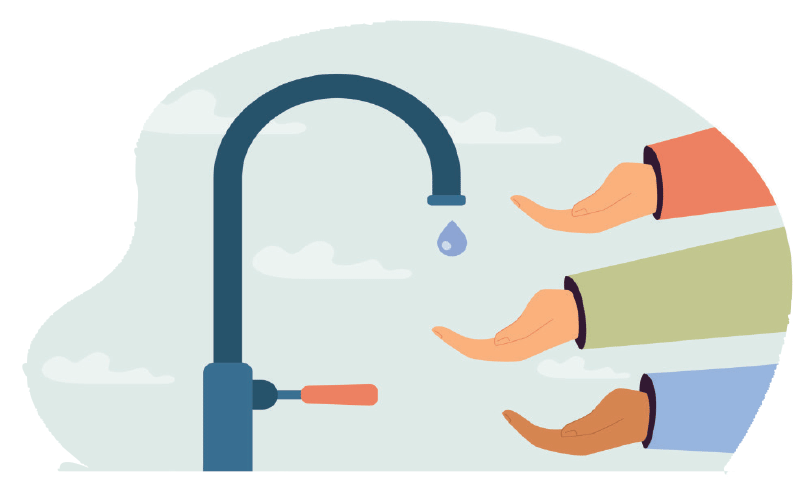Opting for consensus rather than contention, Prime Minister Shehbaz Sharif and PPP leader Bilawal Bhutto-Zardari agreed to go forward with the controversial Cholistan canal only if the provinces agreed. Previously, the military-backed Green Pakistan Initiative (GPI) had become a political flashpoint, with protests escalating across Sindh.
Critics have warned that the canal projects threaten ecological stability, violate interprovincial water agreements, and risk displacing communities, all without sufficient consultation or safeguards. It is not only the farmers and the people who are affected; it affects all living creatures associated.
“This is not a people-centred initiative. It’s a for-profit scheme for cash crop irrigation,” says Zulfikar Ali Bhutto Jr., an environmental activist. He emphasised that when river water stops reaching the sea, it breaks the hydrological cycle. “We are the birds and trees. We depend on the land being affected.”
Environmentalists argue the Indus ecosystem has already been pushed to the brink. “We’ve destroyed natural habitats across the Indus Basin,” says Adil Mansoor, a researcher in farm economics. “The floods of 2010 and 2022 showed us that the cultivation of riverine and belt areas has severely obstructed natural water flow.”
‘The capital outlay and recurring operational costs are prohibitive — without sustained subsidies, the Cholistan canal project is unlikely to remain viable’
The GPI, a multi-billion dollar national programme, aims to cultivate desert land by irrigating state-owned wastelands through new canal infrastructure. The plan spans multiple provinces, including the Cholistan Canal in Punjab, Chashma Right Bank Canal in Khyber Pakhtunkhwa, Kachhi Canal in Balochistan, and Thar and Rainee Canals in Sindh. In theory, it promises reduced food imports, increased exports, and job creation in underdeveloped regions.
Defending the project, Major-General (retd) Shahid Nazir, Director General of GPI, framed the initiative as a national necessity in the face of rapid population growth and intensifying climate stress. “Our top priority is to produce enough wheat domestically,” he says, adding that the project also aims to boost cotton-based textile exports from over $20 billion to between $25-35bn.
Mr Nazir outlined additional goals such as reducing the $5.5bn edible oil import bill by cultivating canola, sunflower, and maise; increasing livestock production for Gulf markets; and launching community-led honeybee, trout, and sheep farming projects in Khyber Pakhtunkhwa and Gilgit-Baltistan. “Once crops reach the market, the exportable surplus will further benefit the economy,” he said.
He also insisted the project avoids displacing small farmers. “We are cultivating state-owned wastelands, not private farms. Provinces will retain land ownership,” he said, clarifying that the Green Corporate Initiative, registered with the Securities and Exchange Commission of Pakistan, will manage operations.
Land allocations include 811,000 acres in Punjab, 52,000 in Sindh, and 26,000 in Balochistan, with 170,000 acres already under cultivation. “Ninety-nine per cent of partner firms are locally owned,” he added, rejecting speculation about foreign takeovers. “Agreements have already been signed with Punjab, Sindh, and Balochistan,” Mr Nazir said. “Others, including Khyber Pakhtunkhwa and Gilgit-Baltistan, are in process.”
However, concerns persist that such large-scale desert farming requires continuous subsidies to remain viable, an approach that has only succeeded in places like Saudi Arabia and Egypt under heavy state investment. “It may be technically executable on paper, but it is economically unsound,” says Mr Mansoor. “The capital outlay and recurring operational costs are prohibitive. Without sustained subsidies, the project is unlikely to remain viable.”
Mr Mansoor added that the Cholistan region receives minimal rainfall and that its historical rivers, Sutlej, Jhelum, and Beas, were already diverted under the Indus Waters Treaty. “This project involves lifting and channelling water from the Indus, most likely the Chenab, over 300-400km into Cholistan.”
Dismissing these notions, however, Mr Nazi said these canals would draw directly from the Indus. “There is no canal drawing water from the Indus River for these projects,” he says. “The Cholistan Canal will originate from the Salwan Headworks, built on a river carrying about 300,000 acre-feet of excess monsoon water from India, which otherwise often causes flooding and devastation in Sindh.”
Although Mr Mansoor acknowledged that the project’s request for one million acre-feet (MAF) is relatively modest compared to Pakistan’s annual 100 MAF allocation, he cautioned: “Once cultivation begins, deserts may demand more water than anticipated. Without structural safeguards, water might be redirected to politically or economically prioritised projects, undermining lower riparian protection.”
Mr Bhutto pointed to declining glacier formation and rainfall since the construction of the Tarbela and Kotri Dams in the 1970s. “Even Mangla Dam, so far upstream in Kashmir, has reached dead levels. If we don’t have water that far north, how can we expect to divert water to Cholistan and still have enough left for Sindh?”
A spokesperson for the Sindh government, Mustafa Baloch claims that in 2023–24 alone, Sindh experienced a 40pc water shortage, a continuation of a decades-long pattern. Historical data shows that from 1999 to 2023, Sindh suffered a 19.4pc water deficit compared to Punjab’s 13.7pc. Meanwhile, environmentalists argue that letting river water flow into the sea is essential, not wasteful. “When river water reaches the sea, it creates fertile coastal lands,” Mr Bhutto said. “Egypt’s Nile Delta is more agriculturally productive because fresh river water pushes seawater back, creating suitable conditions for multiple crops year-round.”
Yet historical mistrust continues to cloud federal-provincial relations. Activists argue that decisions are being made without consultation or transparency. “There’s no clarity on who the experts are or how decisions are being made. If experts were consulted, we don’t know who they are,” said Mr Bhutto.
Even within provinces, inequality persists. “Tail-end farmers in Sindh suffer far more than landlords at the canal heads,” says Mr Mansoor. “There may be enough water in the system — it’s the distribution that’s unequal. But it’s easier to blame ‘the other’: at the national level, that’s India; at the provincial level, it’s Punjab.”
The writer is the head of Dawn News English
Published in Dawn, The Business and Finance Weekly, April 28th, 2025


